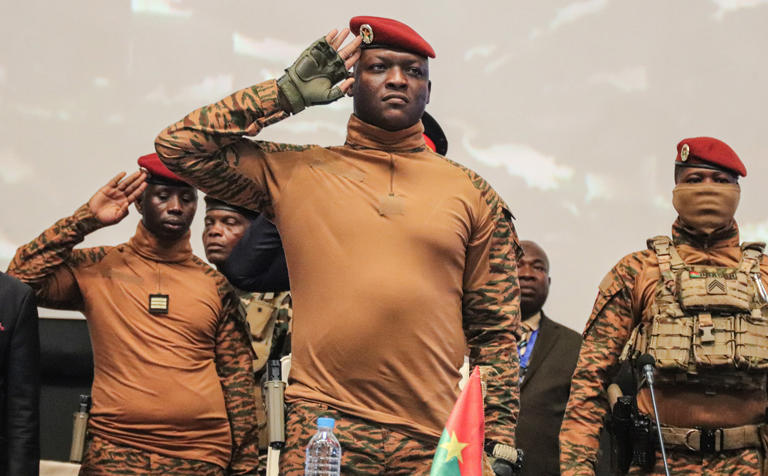Former Ghanaian MP and journalist Ras Mubarak has sparked fresh conversations across the continent after delivering a passionate speech in Istanbul, where he praised the political uprising in the Sahel as a bold step toward African self-liberation.
Addressing African students on African Union Day, Mubarak challenged traditional notions of democracy, urged a break from Western dependency, and called on the youth to lead Africa’s rebirth from the front.
1. A “psychological awakening” in the Sahel
Ras Mubarak praised the recent developments in the Sahel, especially in Burkina Faso, calling them a “psychological awakening” that signals Africa’s shift towards self-determination. He emphasized that the region’s recent political changes were not signs of instability, but a “rebirth” of African leadership and clarity.
2. Captain Ibrahim Traoré as a symbol of resistance
Mubarak singled out Burkina Faso’s military leader, Captain Ibrahim Traoré, as a symbol of resistance against the failures of post-independence governance. Despite not being democratically elected, Mubarak saw him as someone who was using power to serve the people, not to submit to the elites or foreign powers.
3. A new generation of African leaders
Mubarak celebrated the emerging leaders in Burkina Faso, Mali, and Niger who are rejecting foreign military presence, unequal trade deals, and neo-colonialism. He saw these leaders as breaking free from a cycle of dependence that has plagued the continent for decades.
4. Reclaiming sovereignty without external approval
According to Mubarak, the transformation of Africa will not come from Western approval but from African-led initiatives that reflect the dignity and will of the people. He urged Africans to embrace self-governance and reject the notion that solutions should come from foreign capitals like Paris or Washington.
5. Redefining democracy for Africa
While Mubarak didn’t reject democracy, he called for a redefinition of it—one that serves the needs of African citizens. He argued that true democracy must deliver dignity and independence, focusing on political and economic freedom rather than just regular elections.
6. Challenges to African economic and political integration
Mubarak criticized the slow progress of initiatives like the Eco, ECOWAS’s single currency, which he noted had been promised for decades but has yet to be realized. He linked this stagnation to African leaders who prioritize foreign interests over regional integration and economic empowerment.
7. Looking east for partnerships, not west
Mubarak advocated for stronger ties with the Global South—countries like China, Russia, and Brazil—that are more willing to collaborate with Africa on equal terms. He emphasized the need to stop seeking solutions from the West, where partnerships often come with strings attached.

